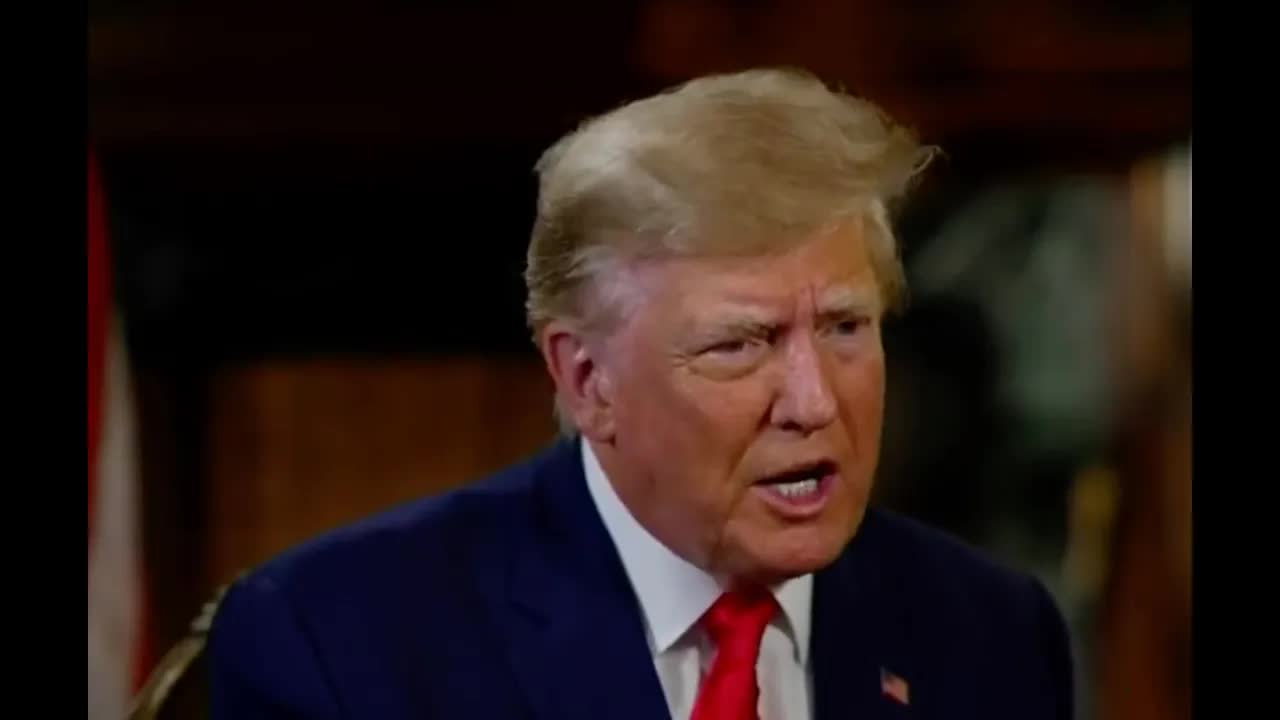For over fifty years, a tradition has unfolded in American politics where major party presidential candidates sit down for an interview with CBS's 60 Minutes in October.
This year, both Vice President Kamala Harris and former President Donald Trump were invited to partake in this time-honored practice.
However, the excitement quickly dimmed when Trump abruptly canceled his scheduled interview last week, leaving many to wonder about the implications of his decision.
Initially, the Trump campaign had confirmed that the interview would take place at Mar-a-Lago, but they also suggested an alternative location in Butler, Pennsylvania—a site tied to a past assassination attempt on Trump.
The campaign's communications director, Stephen Chung, even texted assurances that logistical arrangements were being made for both venues.
But just days before the interview, Trump opted out, citing various reasons that seemed to shift with the wind.
One of the first complaints from Trump's camp was the prospect of fact-checking during the interview.
This raised eyebrows, as 60 Minutes has a long-standing reputation for holding politicians accountable.
It's not just their style; it's part of journalism's job description.
Following that, Trump demanded an apology regarding comments made during a previous interview with correspondent Leslie Stahl, claiming she misrepresented facts about Hunter Biden's laptop.
However, a closer look reveals that Stahl never stated the laptop originated from Russia, contradicting Trump's assertion.
Interestingly, while Trump has criticized Harris for avoiding tough interviews, the reality paints a different picture.
Harris has faced challenging questions on platforms like 60 Minutes, Call Her Daddy, and The Howard Stern Show—an environment where Trump himself has often found comfort.
Meanwhile, Trump's recent interview schedule appears to favor conservative voices like Ben Shapiro and Laura Ingraham, raising questions about who is truly shying away from the heat of tough questioning.
The narrative that Harris is afraid of difficult interviews seems increasingly flawed, especially when juxtaposed with Trump's avoidance of 60 Minutes.
His refusal to engage with a program known for its rigorous questioning suggests a deeper fear of accountability.
The notion that a presidential candidate would shy away from an interview simply because they might be fact-checked is bewildering.
Is it really too much to ask a presidential hopeful to be honest?
The political landscape is rife with projections, and Trump's latest excuses are no exception.
His insistence that he won't participate in interviews unless he can speak without scrutiny reflects a troubling trend.
It raises the question: has the bar been lowered so much that a candidate's willingness to face the truth has become negotiable?
Recent events have shown that the Republican Party is struggling with a similar issue.
When confronted with facts, some party members resort to whining instead of engaging in constructive discourse.
The reaction to media fact-checking has often been defensive rather than reflective, indicating a reluctance to accept accountability.
As the political drama unfolds, the implications of Trump's withdrawal from the 60 Minutes interview cannot be overlooked.
If Harris had backed out of a high-profile interview, the media firestorm would have been relentless.
Yet, Trump seems to escape similar scrutiny, perhaps due to his established rapport with the network.
This double standard highlights the inconsistencies in how candidates are treated based on their political affiliations.
Political operatives, including those from within Trump's own circle, have begun to acknowledge the irony of the situation.
Despite the narrative that Harris is dodging tough questions, it is Trump who is consistently evading critical discussions.
His withdrawal from the 60 Minutes interview speaks volumes about his willingness—or lack thereof—to face challenging inquiries head-on.
In the end, the ongoing saga between Trump and Harris reveals more than just a missed interview opportunity; it underscores a broader issue within American politics.
The reluctance to engage in meaningful dialogue and the tendency to project one's fears onto opponents creates a murky environment where truth becomes subjective.
As the 2024 election approaches, the stakes are higher than ever.
The public deserves candidates who are willing to engage openly and honestly.
Trump's recent actions suggest he may not be prepared to defend his positions, raising serious questions about his candidacy moving forward.
The narrative may shift, but the truth remains steadfast—voters deserve transparency, and the avoidance of tough questions will not serve anyone well in the long run.































